The SuPerTandem consortium is a blend of leading research institutes in their field combined with private companies and SMEs capable of producing large-scale materials, perovskite photovoltaic, 3D printing or coating.
Project team

Netherlands Organisation for Applied Scientific Research is an independent research organisation in the Netherlands that focuses on applied science.
The organisation also conducts contract research, offers specialist consulting services, and grants licences for patents and specialist software. TNO tests and certifies products and services and issues an independent evaluation of quality. Moreover, TNO sets up new companies to market innovations.
TNO was established by law in 1932 to support companies and governments with innovative, practicable knowledge. As a statutory organisation, TNO has an independent position that allows to give objective, scientifically founded judgments.
TNO fulfils the role of innovator on behalf of the Ministry of Defence, the Ministry of Social Affairs and Employment, and the Geological Survey of the Netherlands. In these cases, TNO is entrusted with government responsibilities related to defence and security, workforce participation and the Geological Survey.
TNO’s strategy is based on technological advances and trends in society. The work of TNO is focused on 9 domains which are in line with the challenges and goals of the national economic policy, based on so-called Top Sectors, and with social issues relevant to The Netherlands and Europe.
website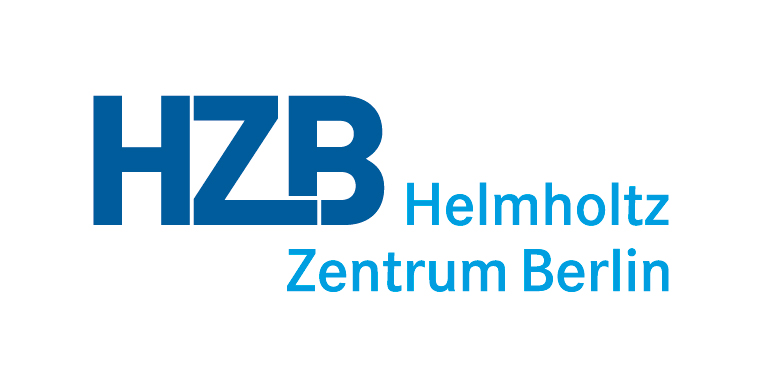
Helmholtz-Zentrum Berlin für Materialien und Energie researches solutions for a climate-neutral society. Researchers are developing and optimising efficient and cost-effective materials for solar cells, batteries, and catalysts. These energy materials are essential components for achieving a CO2 neutral and secure energy supply.
The most important tool is the X-ray source BESSY II, which delivers intensely bright light in the soft X-ray spectral region. Researchers are using this to study the structure and function of energy and quantum materials. We are also researching new concepts for accelerator-based X-ray sources and developing new instruments for ever greater measuring precision.
BESSY II attracts an annual average of 2700 visits from guest researchers from 28 countries. They use the light from BESSY II to study, among other things, proteins, storage materials and cultural assets. As the only soft X-ray source in Germany, BESSY II is indispensable for the domestic and international research community.
Research focus on
- Photovoltaics
- Thin-film technologies
- Catalysts / green hydrogen / CO2 conversion
- Solar fuels
- Battery materials
- Quantum materials
- Accelerator physics & technologies
We contribute to the Helmholtz Research Fields of
- Energy
- Matter
- Information
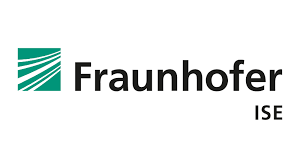
The Fraunhofer Institute for Solar Energy Systems ISE in Freiburg, Germany is the largest solar research institute in Europe. With a staff of about 1400, we are committed to promoting a sustainable, economic, secure, and socially just energy supply system based on renewable energy sources. We contribute to this through our main research areas of energy provision, energy distribution, energy storage and energy utilization. Through outstanding research results, successful industrial projects, spin-off companies and global collaborations, we are shaping the sustainable transformation of the energy system.
In the business areas of Photovoltaics, Energy Efficient Buildings, Solar Thermal Power Plants and Industrial Processes, Hydrogen Technologies and Electrical Energy Storage as well as Power Electronics, Grids and Smart Systems, the Institute develops materials, components, systems and processes. For this purpose, we have an excellent laboratory infrastructure at our disposal. In addition, we perform analyses, carry out studies, provide consultations and offer our clients testing and certification procedures. Fraunhofer ISE is certified according to the quality management standard DIN EN ISO 9001:2015.
website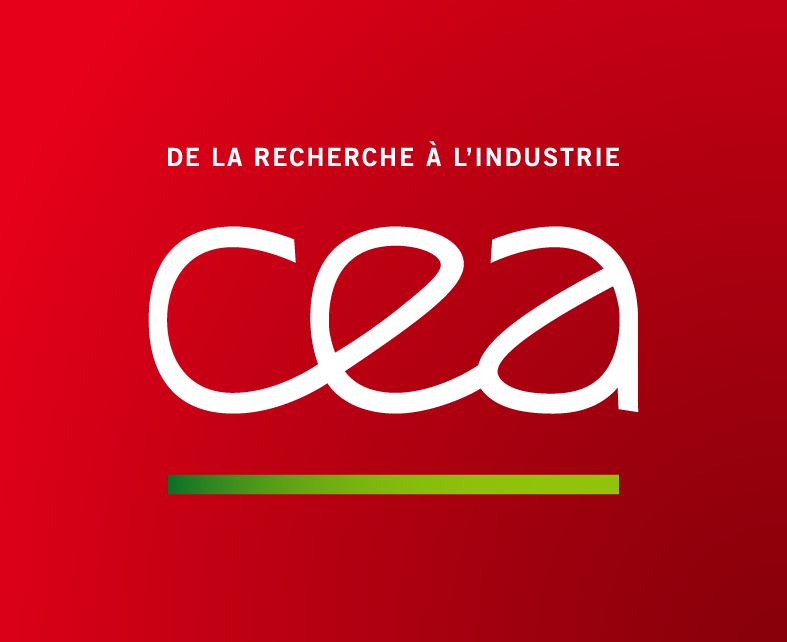
The French Alternative Energies and Atomic Energy Commission (CEA) is a key player in research, development, and innovation in four main areas:
- defence and security,
- low carbon energies (nuclear and renewable energies),
- technological research for industry,
- fundamental research in the physical sciences and life sciences.
Drawing on its widely acknowledged expertise, the CEA actively participates in collaborative projects with a large number of academic and industrial partners.
The CEA is established in nine centres spread throughout France. It works in partnership with many other research bodies, local authorities, and universities. Within this context, the CEA is a stakeholder in a series of national alliances set up to coordinate French research in energy (ANCRE), life sciences and health (AVIESAN), digital science and technology (ALLISTENE), environmental sciences (AllEnvi) and human and social sciences (ATHENA).
Widely acknowledged as an expert in its areas of skill, the CEA is actively involved in the European Research Area and its international presence is constantly growing.
The CEA is the only French research organization to be listed in the Clarivate 2020 ranking and is the leading French research organization filing patents in Europe, according to the European Patent Office (EPO) 2021 ranking.
website
Saule Technologies is a pioneer in the research and manufacturing of perovskite photovoltaic cells – a new generation of solar cells. Perovskite cells, printed by Saule Technologies on flexible foils, are lightweight, ultra-thin, semi-transparent, and very effective, even in artificial light.
Thanks to this, the range of possible applications of perovskite photovoltaic cells significantly surpasses the range of applications of traditional silicon technology. The company was founded in 2014 by Olga Malinkiewicz, the inventor of the printing method, and experienced businessmen – Piotr Krych and Artur Kupczunas.
Today, Saule Technologies is a team of over 70 scientists, engineers, and administrative staff from several countries, working in an R&D center with one of Europe’s best-equipped optoelectronics laboratory and the first in the world perovskite photovoltaic cells production line. Releasing products available for licensing and first B2B sales (since early 2021) proves that Saule Technologies is a world leader in commercializing perovskite photovoltaic cells. Saule Technologies partners include companies such as Skanska, Columbus, Somfy, Google Cloud.
website
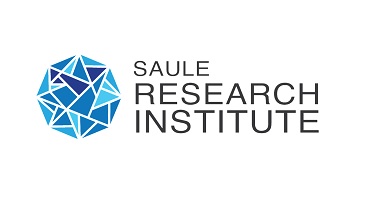
Saule Research Institute is an international hub of scientists focused on research in the field of optoelectronics, understanding the importance of applied science and their related fundamental aspects, as inseparable ingredients of successful R&D processes.
Saule Research Institute (SRI) is a foundation established to carry out research activities, primarily specializing in the field of optoelectronics. We implement modern approaches allowing young researchers to run international projects and work with scientists from all over the world
SRI activities will also cover more fundamental aspects of researched areas. It is very important for every scientific unit to find a balance between a work focused on technology development and activities allowing a better understanding of some fundamental processes occurring in a given system.
website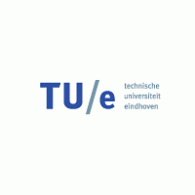
Established in the 1950’s, TU/e has always had strong values: optimism, collaboration, and a dedication to society. These values helped Brainport Region Eindhoven flourish and gave our university a prominent position in several rankings for collaboration with industry.
Our publications have high citation scores, consortia we are part of have won prestigious grants and our researchers receive scientific accolades on a regular basis. This distinguishing excellence is based on our three-pillar strategy: attracting talent, using a multidisciplinary approach, and providing a stimulating research environment.
Societal challenges on Health, Energy and Smart Mobility are the driving force for our research. Our research institutes, Eindhoven Artificial Intelligence Systems Institute (EAISI), Eindhoven Institute for Renewable Energy Systems (EIRES), Institute for Complex Molecular Systems (ICMS) and the Eindhoven Hendrik Casimir Institute (EHCI) combine the strengths of our university with industry needs and government strategy.
website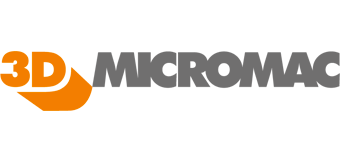
3D-Micromac is the leading specialist in laser micromachining. Our team of experts develops processes, machinery, and complete systems at the highest technical and technological level. 3D-Micromac systems have been successfully implemented in various high-tech industries worldwide. This includes photovoltaic, semiconductor, glass and display industry, micro diagnostics, and medical technology. Our target is to completely satisfy customer demands even on the most complex projects.
3D-Micromac adheres to high-performance and future-oriented micromachining processes at high production efficiency. Our technologies have set international standards for true innovation. Since we place great importance on continually expanding our know-how, we are diligent about keeping up with the latest research. On a daily basis, we combine recent results with our customers’ demands to realize them in practice.
3D-Micromac AG was founded in 2002 in Chemnitz by Tino Petsch with a total of six employees. Since then, the company has grown to more than 190 employees today.
In its strategic alignment 3D-Micromac concentrates particularly on international high-tech markets. We are one of the first companies in the world to focus on the use of ultra-short pulse lasers for the processing of materials. We also specialize in the use of excimer lasers for microprocessing. More than 100 excimer laser micromachining systems produced by 3D-Micromac AG are currently in industrial use.
In a period of 10 years 3D-Micromac AG has carved out a strong position for itself among manufacturers of laser micromachining systems. With that we have established a strong foundation for dynamic growth in international markets.
website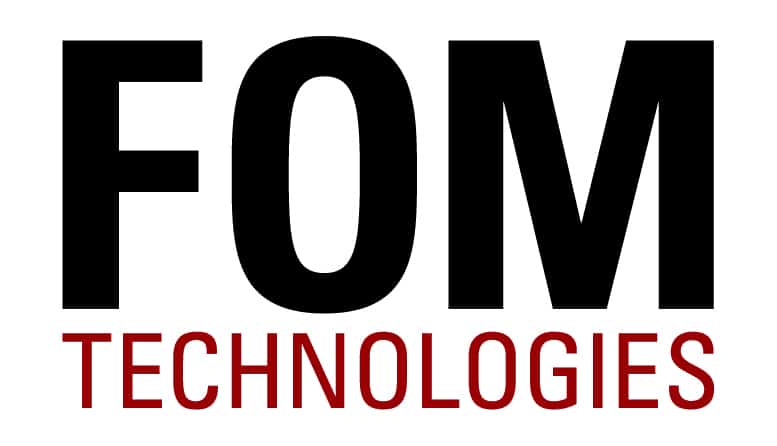
FOM Technologies started as a “one man band” with a single product in 2012. The company spun out of the prestigious Risø National Laboratory for Sustainable Energy at the Technical University of Denmark (DTU). In our early days, we specialized in benchtop roll coaters for organic solar cell research.
Today, FOM Technologies offers a diverse range of standardized and customizable tools for a wide variety of R&D applications. Our clients, partners and distributors span the globe, and we are proud to say that our team includes a high percentage of PhD’s in Chemistry, Nanotechnology and Chemical Engineering to ensure that the needs of our clients sit at the heart of our company.
website

SALD is a spin-off from SoLayTec, which developed and sold advanced Spatial ALD machines for the mass production of solar panels, mainly to China. Therefore, SALD has in-depth expertise in Spatial ALD technology, combined with the unique ability to transfer it from lab to fab. To realize the great opportunities in today’s growth markets, SALD has developed a unique technology that makes this possible, which is protected by several patents. This technology has been incorporated into a compact machine that can be used for research as well as for small-scale production. Also, research programs have been started, in which SALD works closely with renowned research institutes.
SALD has the ambition to be at the forefront of promising new applications for Spatial ALD. Our experts combine their in-depth knowledge with renowned scientists and institutions around the world. Feel free to challenge our innovators: together, we will take your Spatial ALD application to the next level.
Research institutes and companies are welcome to test SALD’s unique technology.
This means that our customers supply their substrate material to SALD, and SALD deposits the substrates with one or more atom-thin layers of their choice and in consultation with our spatial ALD experts.
Evaluations are done in house, at our partners facilities (e.g. TU/e) or by our customers itself.
We can also assist in comparing our deposition technology to other deposition methods.
website
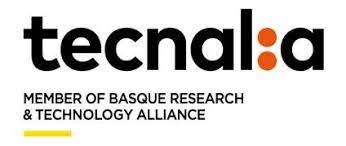
TECNALIA is the largest centre of applied research and technological development in Spain, a benchmark in Europe and a member of the Basque Research and Technology Alliance. We collaborate with companies and institutions to improve their competitiveness, people’s quality of life and achieve sustainable growth. We do it thanks to people who are passionate about technology and committed to building a better society.
Our Mission: To transform technological research into prosperity.
Our Vision: To be agents of transformation of companies and society for their adaptation to the challenges of a changing future.
We work with an increasingly strategic business relationship model based on trust, collaboration, and a shared technological approach, whereby our main scopes of action are: smart manufacturing, digital transformation, energy transition, sustainable mobility, Personalised health, urban ecosystem and circular economy.
We are the first private Spanish organisation in contracting, participation, and leadership in the European Commission’s Horizon 2020 programme and we are ranked third in European patent applications.
website

AMIRES is a consulting company for research, development, and innovation projects. Our main strength is the creation of new international sustainable partnerships within innovation focused value chains. Our developed projects remain the main enablers for our industrial clients and their growth and provide the important opportunities for R&D community.
Our activities focus mainly on the following strategic fields: Energy Efficiency, Additive Manufacturing, Photonics, Flexible Electronics, and Regenerative Medicine and Medical Devices:
We are specialized in creation of consortia of partners with common aim for product or service innovation with significant potential for know-how commercialization. Unique and profound knowledge of the European public funding environment (e.g. EU Framework Programmes for research and technological development) as well as broad network of market key-players contribute to the high quality of entrusted projects. We follow projects from their initiation and planning, through negotiation, execution and management to the final stage, where exploitation of a new technologies, products or services is facilitated.
With continuous improvement of our work by various benchmarking methods, we have the aim to become a reliable partner for our customers (industry, SMEs, research centers and universities) in every innovation step. Our services are predominantly provided in the domains of material sciences (e.g. chemistry, physics, nanotechnology), energy efficient buildings and technologies, life sciences (e.g. biology, health), information and communication technologies (e.g. new components and systems, data networks, computation, modelling etc.) and security (e.g. forensic methods, THz imaging).
We are experienced in identifying new opportunities in the field of technology and in finding the most suitable solutions to your needs and technical challenges. We keep track of new developments and trends and make use of them. Our services are predominantly provided in the domains of material sciences, energy efficient buildings and technologies, life sciences, information and communication technologies and security.
website

Our vision is as simple and straight-forward as it is bold and ambitious. It is a beacon of sorts that shows us where we ought to be heading and what we should strive for. It serves as a gold standard for many if not all our activities.
To cope with the manifold challenges that loom ahead, it will be crucial to deliver sustainable and resilient solutions with the help of science and technology. At Empa, we are taking on the task of developing and sketching out paths into a liveable future for the coming generations.
One thought is key for us: Wherever possible, we would like to help close materials cycles with the help of innovative technologies, i.e. we want to move away from today’s throwaway society and pave the way to a circular economy. Because our natural resources are finite – and far too valuable not to be recycled or reused.
To assume this role responsibly Empa has elaborated, based on the institute’s vision, a comprehensive mission statement spelling out its goals, core values and corporate culture, which guides all of us in our endeavour to excel and to contribute to making the world a more sustainable place.
At the very heart of all of this are the 1’000-odd scientists, engineers, technicians and general staff, the asset that makes Empa a world-renowned research institute for materials science and technology.
Together with our partners from research, industry, or the public sector we are pushing the limits in science and technology for a prosperous tomorrow.
As an interdisciplinary research institute of the ETH Domain, Empa, the Swiss Federal Laboratories for Materials Science and Technology, conducts cutting-edge materials and technology research. Our research and development activities focus on meeting the requirements of industry and the needs of society, and thus link applications-oriented research to the practical implementation of new ideas in the areas of nanostructured, “smart” materials and surfaces, energy, sustainable building, and environmental technologies as well as medical technology and solutions for personalized medicine.
We are thus capable of providing our partners with customized solutions that not only enhance their innovative edge and competitiveness for global markets, but also help to improve the quality of life for the public at large. Through an efficient technology transfer Empa is turning research results into marketable innovations – true to our mission statement: Empa – The Place where Innovation Starts
website
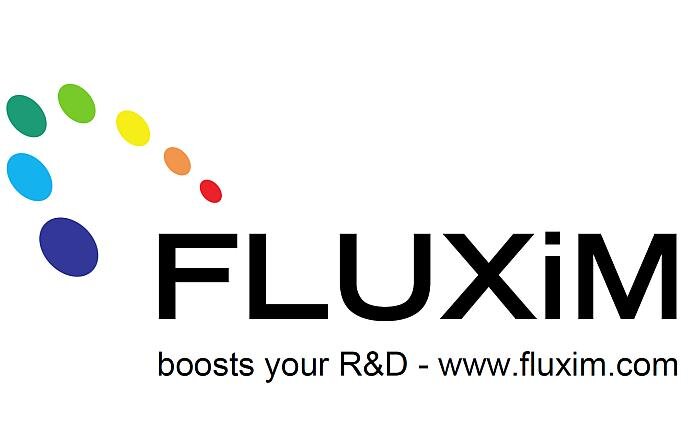
FLUXiM AG provides simulation software and measurement hardware for research and development of displays, lighting, and photovoltaic cells in industry and academia. Design and optimization of organic, quantum dots, and perovskite solar cells and LEDs are possible with our products.
We support the Research and Development of Thin-film Photovoltaics, such as Quantum-dot, Organic, and Perovskite Solar Cells. You can simulate and characterize thin-film solar cells or perovskite tandem solar cells. The device stability can be estimated by following the ISOS protocols.
website